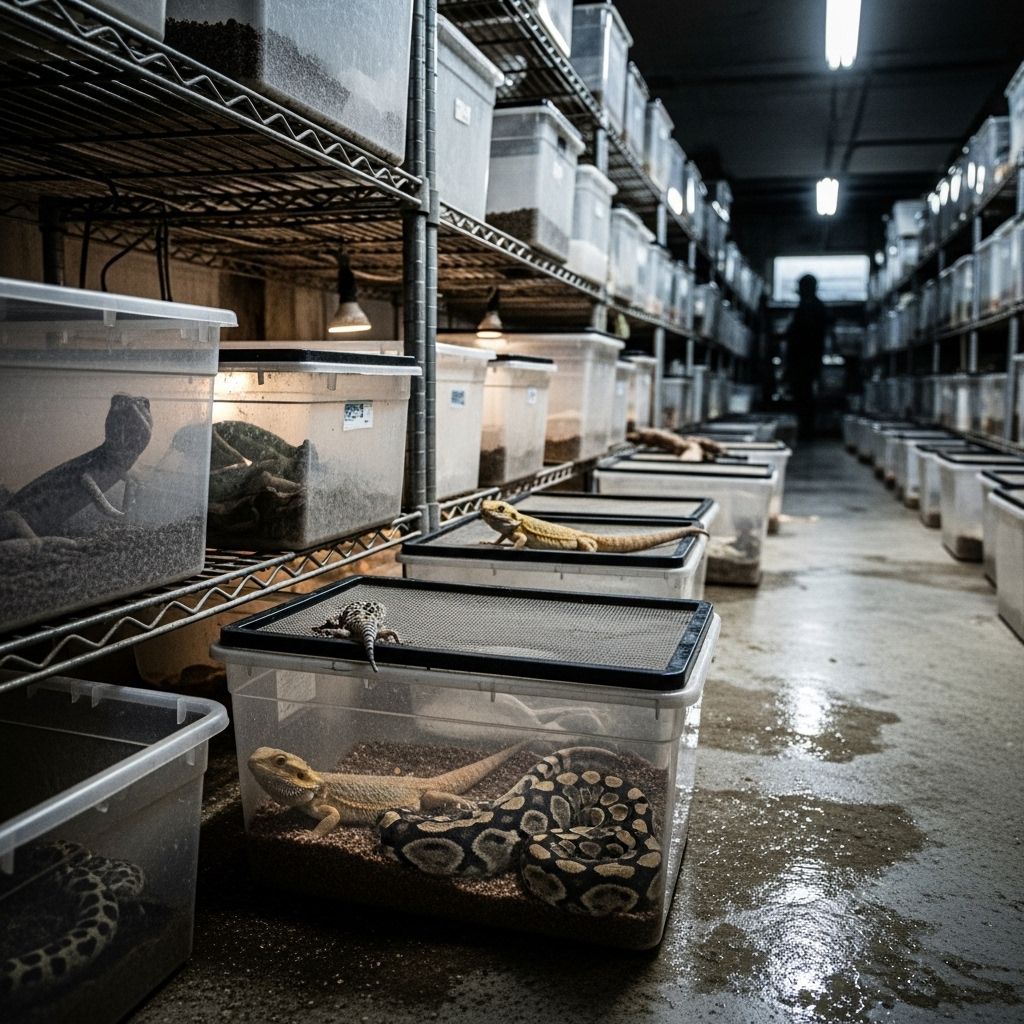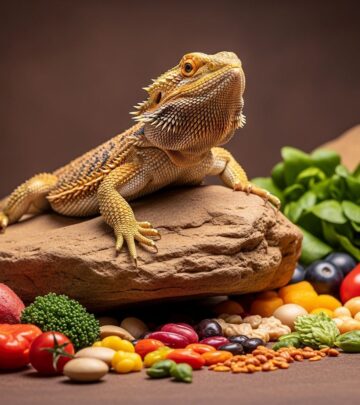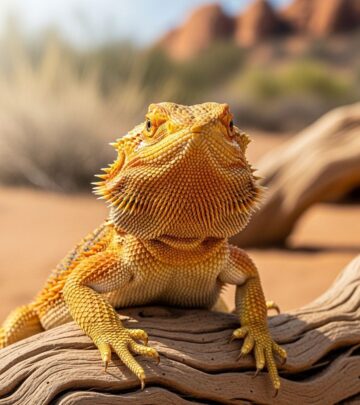Whistleblower Reveals Suffering and Neglect of Reptiles at Major Pet Supplier for PetSmart
High-volume breeding puts profit over animal care, causing unnecessary suffering.

Reptiles in Peril: Inside a Shocking PetSmart Supplier Exposé
A former employee-turned-whistleblower has brought to light disturbing evidence of animal suffering and neglect at Reptiles by Mack, a leading reptile breeder and supplier to PetSmart and other national pet store chains. Through damning video footage, firsthand testimony, and the advocacy of animal welfare organizations, the reality hidden behind the walls of industrial reptile breeding facilities has been exposed to the public, casting new scrutiny on the live animal trade.
The Whistleblower’s Story: Bearing Witness to Widespread Suffering
The exposé began when an ex-employee of Reptiles by Mack, located in Xenia, Ohio, decided to document and report the appalling conditions they encountered daily. Their courageous decision to film inside the facility provides one of the most comprehensive inside looks yet at the fate of reptiles bred en masse for the pet trade. Their evidence quickly drew the attention of organizations like PETA, who highlighted the scale and seriousness of the suffering uncovered.
Key Revelations: What the Footage Showed
- Severe and Unaddressed Illnesses: Footage revealed bearded dragons convulsing and twitching uncontrollably, reportedly due to a suspected viral outbreak. There was widespread evidence of animals suffering from severed limbs and tails, with no sign of timely veterinary treatment.
- Mass Deaths: Over a period of just eight weeks, the whistleblower counted sixty-nine bearded dragons found dead; numerous others were recorded dead shortly after arrival from shipping.
- Basic Needs Denied: Many animals were kept in plastic tubs so barren and improperly maintained that they lacked even fresh water, with reports stating some reptiles went days without any access to hydration.
- Inhumane Shipping and Housing: Thousands of baby dragons were reportedly imported from overseas, packed by the dozen into cramped, airless plastic containers, leading to additional stress, illness, and fatalities.
Slow Growers and Cullings: The Fate of “Unprofitable” Animals
Beyond neglect, the whistleblower’s report documented deliberate and routine culling of baby dragons considered unfit for sale. Animals labeled as “slow growers”—those failing to reach a strict weight threshold by even a fraction of a gram—were systematically and callously killed, sometimes by gassing. Deformed hatchlings were typically euthanized. In a particularly shocking case, conjoined twin bearded dragons were targeted for auction to the highest bidder, rather than being adopted into appropriate private care.
Industry Practices: The Assembly Line of Life
The evidence from Reptiles by Mack provides a rare glimpse into standard breeding facility practices at scale. The aim: maximize output, minimize cost, and supply an unending stream of live reptiles for the pet industry, regardless of animal welfare.
Key aspects include:
- Mass Breeding: High-volume production results in thousands of offspring destined for stores every month — many shipped before they are robust or fully healthy.
- Crowded Enclosures: Plastic bins replacing naturalistic habitats, preventing animals from exhibiting natural behaviors and heightening disease risk.
- International Importation: Many reptiles are flown in from breeders overseas, facing lengthy, stressful, and poorly regulated journeys in confined containers.
How PetSmart Responded
In the wake of the whistleblower’s revelations, animal welfare advocates, led by PETA, called for immediate and sweeping reforms, including a halt to all sales of live animals at PetSmart and similar chains. PETA senior vice president Daphna Nachminovitch emphasized that “PetSmart’s animal sales are the meal ticket for miserable breeding operations like this one,” underlining that continuing demand enables the perpetuation of careless mass breeding and animal suffering.
Despite repeated outreach from the whistleblower to management, and calls from activists and the public, PetSmart’s official responses have been limited and largely focused on internal reviews, with little transparency regarding specific corrective actions or changes to their supplier policies.
Table: Main Allegations Against Reptiles by Mack
| Type of Abuse/Neclect | Details/Evidence Noted |
|---|---|
| Deprivation of Water | Reptiles denied regular access to hydration for days. |
| Untreated Injuries | Severed limbs/tails, viral symptoms left unaddressed. |
| Mass fatalities | Dozens of dead animals found over weeks; high mortality upon shipping/arrival. |
| Overcrowded Shipping | Baby reptiles imported by the dozen in tiny containers. |
| Callous Culling | “Slow growers” and deformed hatchlings culled; twins targeted for auction. |
Public Outcry and the Push for Reform
Animal advocates, supported by widespread outrage from pet lovers and concerned consumers, are calling for:
- The immediate cessation of bearded dragon and live animal sales at major chain stores.
- Implementation of robust, externally audited animal welfare standards for all breeders and suppliers.
- Greater transparency and accountability in the sourcing and treatment of live animals in the retail pet trade.
- Public education campaigns to inform would-be reptile owners about the ethical risks of buying live animals from large chains.
Beyond PetSmart: The Broader Issue of Live Animal Sales
While the focus of this exposé is on PetSmart’s supplier, the problem is symptomatic of the broader live animal trade. The drive for profit, efficiency, and inventory turnover in large-scale pet retailing creates systemic incentives to treat living creatures as disposable commodities rather than sentient beings worthy of care.
What Consumers Can Do
- Research Before Buying: Prospective pet owners should research the origins of animals at point of sale, with a preference for reputable, ethical rescues or breeders self-adhering to verifiable welfare protocols.
- Support Legislative Reform: Add your voice to campaigns pushing for government oversight, stricter welfare standards, and bans on live animal sales in retail chains.
- Consider Adoption: Many rescued reptiles are available for adoption, potentially saving animals from suffering and supporting a more compassionate pet ecosystem.
- Raise Awareness: Share information and support advocacy efforts aimed at halting the cycle of industry abuse.
Frequently Asked Questions (FAQs)
Q: What was the main evidence of cruelty at Reptiles by Mack?
A: The whistleblower documented multiple bearded dragons exhibiting distressing symptoms such as shaking and twitching, severe injuries left untreated, dehydration due to lack of water, and regular incidences of death among the reptiles. Video footage and other first-hand documentation were provided to support these claims.
Q: How did PetSmart respond to the accusations?
A: PetSmart’s responses were limited and generally focused on internal assessment, without public disclosure of specific corrective actions. Advocates and the whistleblower maintain that real change will only occur if PetSmart and other chains stop sourcing animals from breeders with poor welfare records.
Q: Why is the breeding of “slow growers” and deformed lizards an ethical issue?
A: These animals are often culled instead of being provided veterinary care or placed in homes. Such practices prioritize profit and inventory control over humane treatment or life value, raising significant ethical concerns.
Q: What are the alternatives for those who want a reptile companion?
A: Adoption from rescue organizations or small, ethical breeders is highly encouraged. Consumers should avoid supporting businesses that treat animals as disposable product.
Q: How can animal welfare standards be improved in the pet industry?
A: Real change requires enforceable, transparent standards accompanied by regular, independent auditing of breeders and suppliers. Public pressure and legislative reform also play a vital role.
Conclusion: Choosing Compassion Over Commerce
The story of bearded dragons at Reptiles by Mack, and their journey through the pet trade, highlights a systemic failure to protect the most vulnerable. It’s a call for accountability—not just for PetSmart and its suppliers—but for an entire industry, and the consumers who sustain it. Compassion and responsible stewardship must take precedence over convenience or profit if animal suffering is to be prevented in the future.
References
- https://www.peta.org/media/news-releases/insider-video-uncovers-dead-sick-and-injured-reptiles-at-petsmart-supplier/
- https://www.speciesunite.com/news-stories/whistleblower-comes-forward-about-petsmart-reptile-suffering
- https://investigations.peta.org/bearded-dragons-suffer-at-petsmart-supplier/
- https://www.instagram.com/p/DDXsZB7TQdE/?hl=en
- https://www.youtube.com/watch?v=xsR-pvUFT3Y
Read full bio of Shinta












